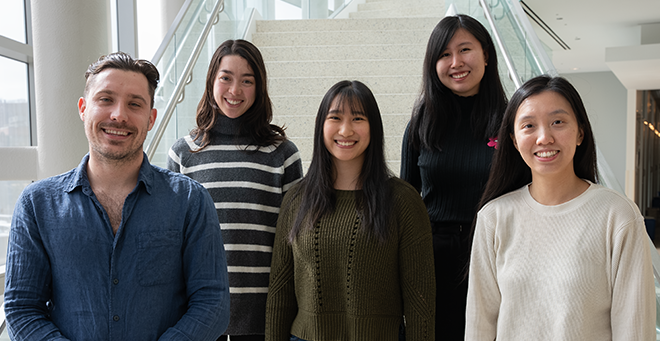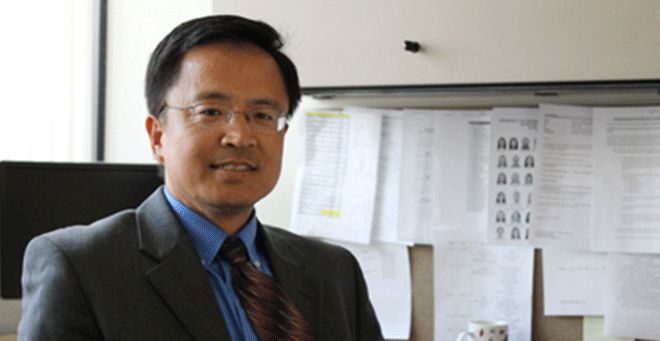
Students participating in the UMass Chan Medical School Food4Thought program have partnered with Community Healthlink to provide a nutrition outreach program with cooking demonstrations and mindfulness classes at two residential programs for people with serious mental illnesses in Worcester.
The Food4Thought program is a student-led, community-based initiative of UMass MIND’s Community Intervention Program. The program launched in 2021, hosting virtual nutrition outreach sessions in coordination with the Genesis Club, a nonprofit recovery group serving greater Worcester.
The Food4Thought program is under the direction of Xiaoduo Fan, MD, MPH, professor of psychiatry, and was conceptualized by medical students Amy Cheung, Marko Stojcevski, and Pooja Dutta, and psychiatry resident Yumi Kovic, MD, MPH.
“Food4Thought is really about working with the community, hearing their voices, and having their inclusion and representation in the building of this program,” Cheung said. “And now the big next step is going into group living environments where there are folks with mental illness or substance use disorders and really trying to see if this could be a way to promote nutrition, but also a way to promote healthy living.”
“The program’s goal is to help reduce cardiovascular disease, high blood pressure, diabetes, obesity and these kinds of conditions that people live with that can be affected by their day-to-day food choices,” Cheung said.
This spring, students in the Food4Thought program will be providing cooking and education modules at Community Healthlink’s Green House and Granite Street House, residential group homes for individuals with a history of mental illness or co-occurring substance abuse.
“Some of the module topics include how to eat healthy on a budget. Right now, the cost of food is high and it’s hard to find healthy accessible food if you’re specifically shopping at pantries or low-cost grocery stores,” said Lauren Shumate, MD/PhD student and Food4Thought program leader. “But it is possible to eat healthy and shop at those places, and we’re going to show them strategies to save money and still eat healthy.”
The program consists of eight sessions over a four- to eight-week period. The sessions are designed for open discussion and hands-on cooking experiences and are tailored to the specific participants.
Medical student and module leader Kai-Lou Yue said, “This is a population that’s very underserved and they’re not used to having programs like this come. It’s exciting that we’re able to do something that they’re interested in participating in. And in some cases, these individuals don’t know each other's names, even though they live in the same building. The fact that we can get them together and cooking together and interacting is awesome.”
“We are recommending listening to how your body feels before you eat and after you eat and being mindful of how your body reacts to food. For example, some foods give you more energy than others. And we're just having these types of discussions with the people participating in the modules,” Shumate said.
Roughly two dozen medical students, nursing students, research staff and undergraduate interns participate in the program. Any medical student can volunteer at a Food4Thought program, sign up for a one-hour shift, and attend the healthy eating education or cooking sessions.
Last year, Food4Thought was one of 10 recipients of a Remillard Family Community Service Fund grant. The grant is being used to fund the programs at community settings.

